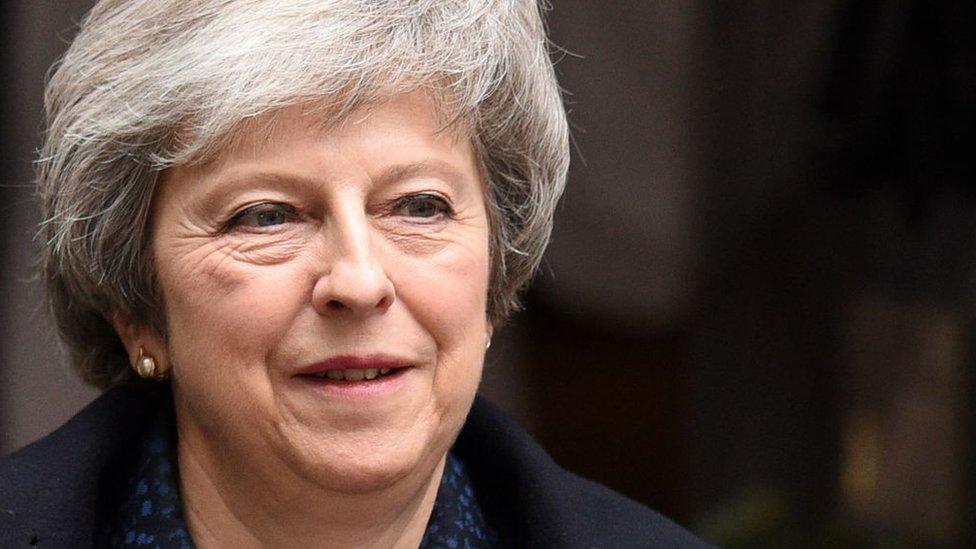Channel migrants: At least 350 intercepted in two days
- Published
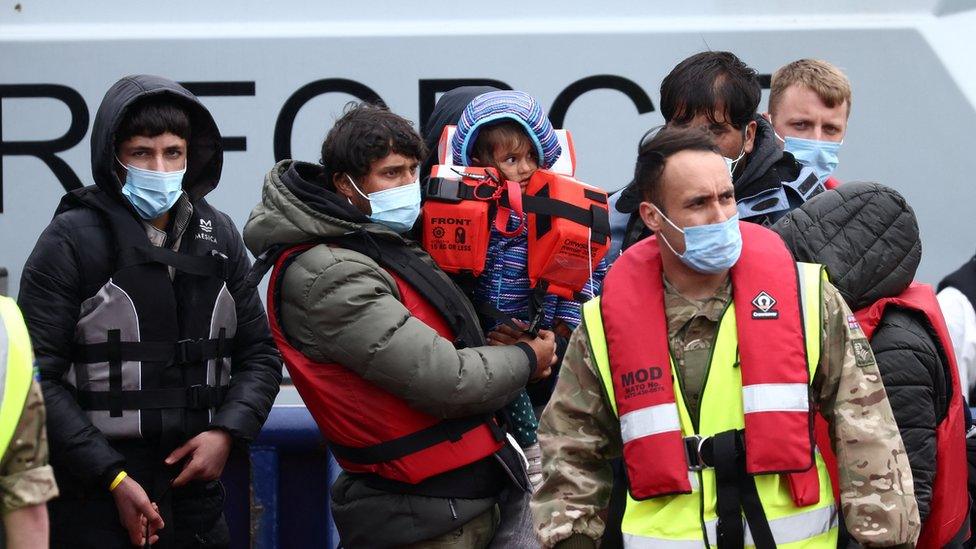
Migrants were escorted in Dover Harbour by military personnel after being rescued while crossing the English Channel on Sunday
At least 350 migrants have been brought ashore from the English Channel in the past two days, according to witnesses and official figures.
The Ministry of Defence (MoD) said it found seven boats carrying 254 migrants on Sunday - witnesses said about 100 migrants have arrived so far on Monday.
The government is addressing the issue by "cracking down on people smugglers", the MoD said.
It is believed to be the first time there have been crossings in 11 days.
Some commentators had suggested the prospect of asylum seekers getting sent to Rwanda was already acting as a deterrent.
However, others had pointed out that as the weather had been windy in the Channel for the past 11 days that might have had a greater effect.
The aid charity and campaign group Care4Calais, which works directly with migrants camped in northern France, said it had surveyed 60 of them over the Rwanda plans, and said 75% of those waiting to try to cross to England would not be deterred by it.
The group, which wants people to be able to claim asylum from outside the UK, said several were sceptical of the Rwanda plan ever being put into place.
Last month, Prime Minister Boris Johnson announced the MoD had taken command of the operational response to small boats crossings.
Responding to the latest interceptions, the MoD described the rise in "dangerous" crossings as unacceptable.
A spokesperson said: "Not only are they an overt abuse of our immigration laws but they also impact on the UK taxpayer, risk lives and our ability to help refugees come to the UK via safe and legal routes."
The decision follows a drastic rise in the number of small boat crossings, with more than 6,000 people have crossing so far this year.
The latest Home Office figures, external suggest 28,526 people made the crossing in 2021, up from 8,466 the year before.

At the scene
By Simon Jones, BBC South East, Dover
I watched in Dover this morning as about 30 migrants were brought to shore just after 09:00 BST. The group was largely made up of young men, relieved finally to be on British soil.
They were put straight on a bus and taken for processing at Manston in Kent.
Conditions in the Channel today are once again calm - just like yesterday, but before then it had been windy at sea for more than a week.
This is likely to explain the temporary halt in crossings at the end of last month rather than the deterrent effect of the government's plans to send some asylum seekers to Rwanda.

Pierre Henri Dumont, the French national assembly member for Calais, told BBC Radio 4's World at One programme he did not believe the UK government's Rwanda programme would deter refugees from crossing the Channel.
He said: "You leave your country because of war, because of starvation. You are not afraid of being held and sent back to another country. At least if you have a chance, you will try.
"Right now, even if this decision [from the UK government] will look backwards, that's something the migrants do not know. They hear the news and the smugglers are disturbing and transforming reality for them to make more money.
"I do have a sympathy and that's why I'm totally against what was a deal between France and the UK.
"The deal was 'we the UK give you money to keep the migrants', [but] I think you are paying us for something we cannot do. It is impossible to patrol the shore that much and to make sure there are no crossings."
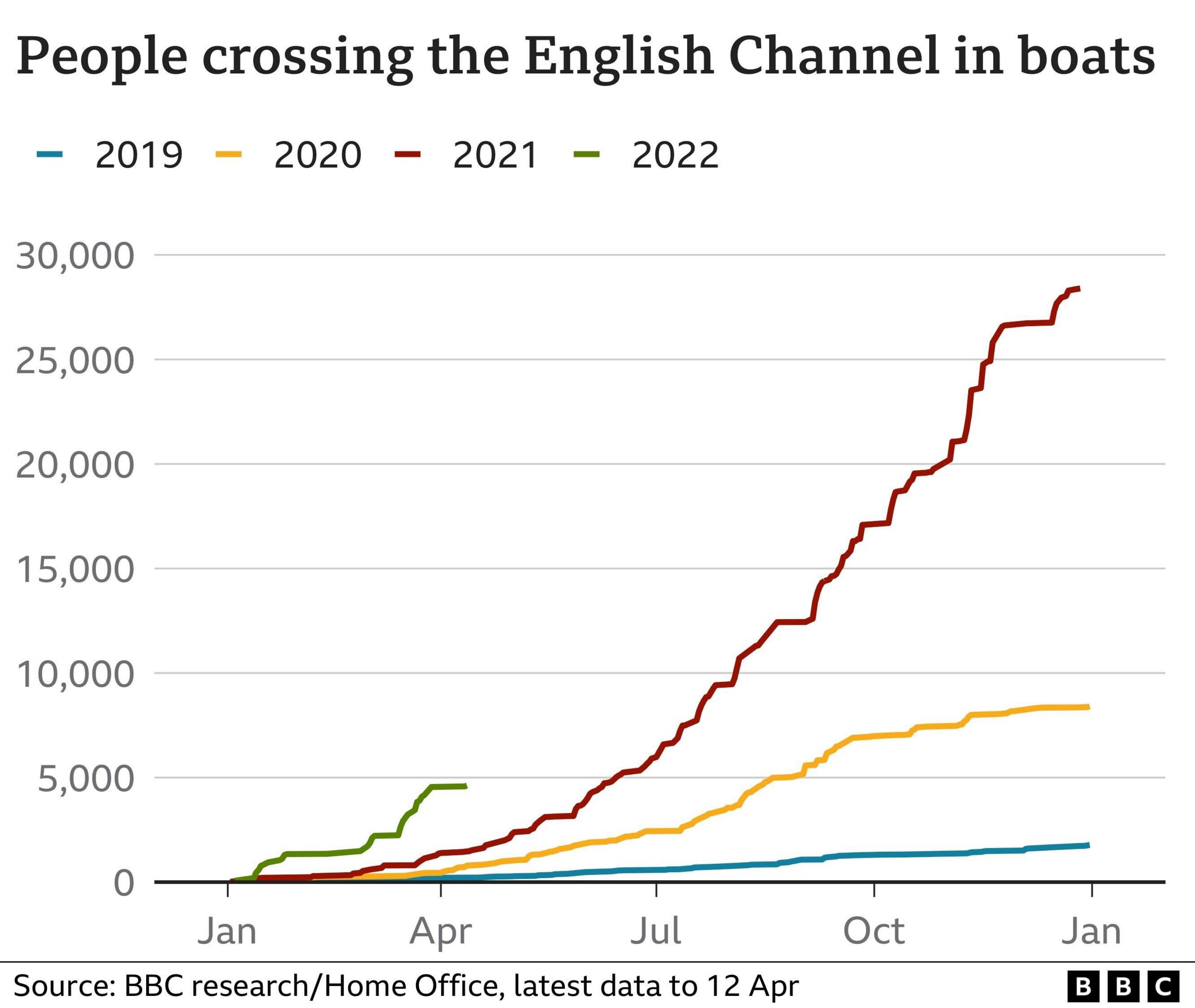
On Monday Labour leader Sir Keir Starmer said there needed to be "an international co-ordinated criminal response" to tackle the criminal gangs, he said, who were driving the migrant crisis.
Speaking in Worthing, West Sussex, he said: "I have worked on international criminal organisations before when I was director of public prosecutions.
"I know what can be done if you've got teams working together across Europe all the way along those routes, absolutely bearing down on these criminal gangs."
Rwanda plans
At the same time as announcing it was giving operational control to the MoD, the government revealed plans to send some asylum seekers who cross the Channel to Rwanda on a one-way ticket.
Under the scheme, people deemed to have entered the UK unlawfully since 1 January could be flown there, where they will be allowed to apply for the right to settle in the east African country.
The government has said the policy would be a major blow to people smugglers and would stop people dying on dangerous routes to the UK.
But it has been criticised as cruel by opposition parties, charities and the Church of England.
More than 160 charities and campaign groups wrote an open letter urging the prime minister and Ms Patel to scrap the "shamefully cruel" policy.
Archbishop of Canterbury Justin Welby used his Easter Sunday sermon to raise what he said were "serious ethical questions" about the scheme, before adding it was "the opposite of the nature of God".
Home Secretary Priti Patel has hit back at critics of the government's plan to send asylum seekers to Rwanda, saying they have failed to offer solutions.
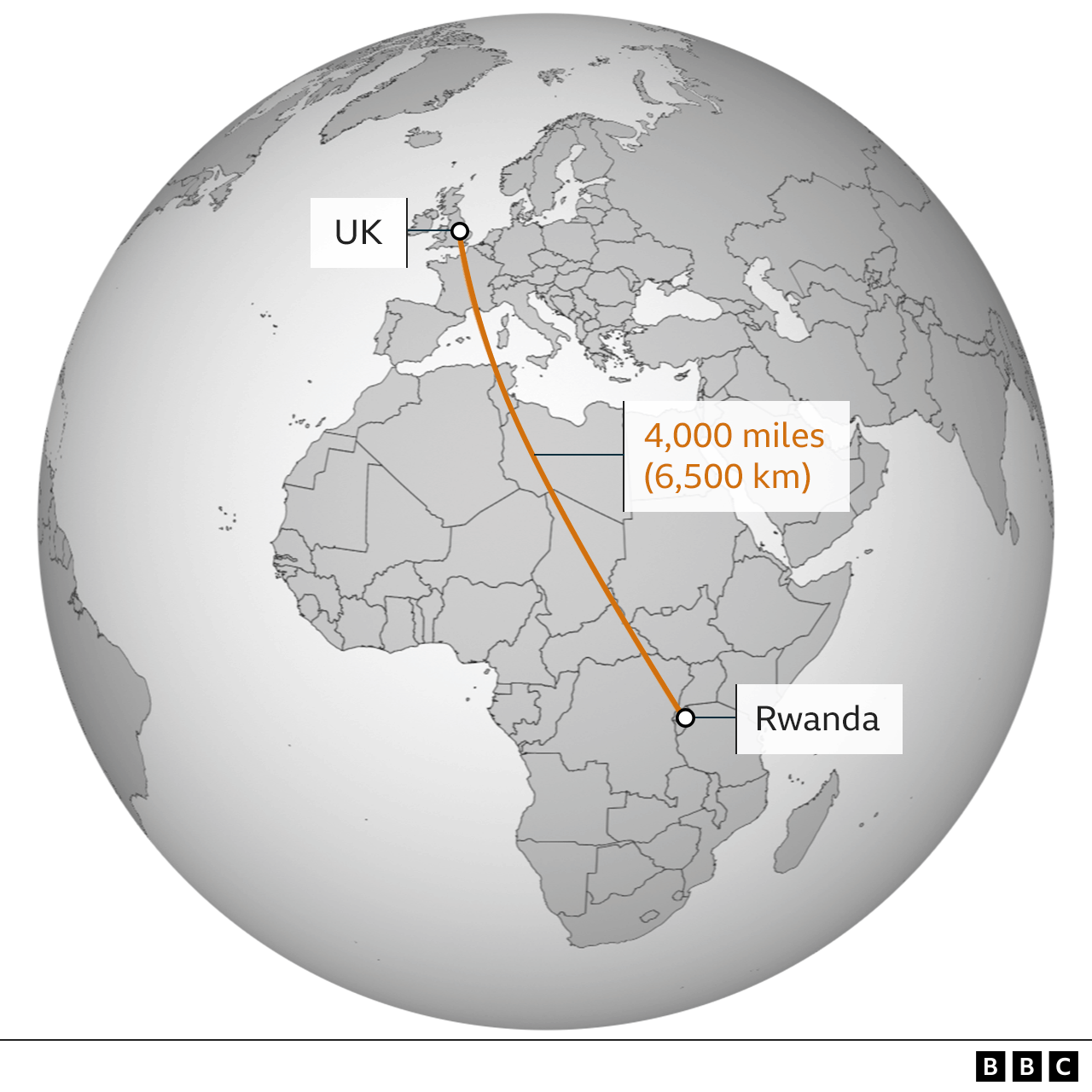
Meanwhile, questions have also been raised about the possible cost and efficacy of the scheme.
Theresa May, the former prime minister who also served as home secretary, said she did not support the policy due to her concerns over whether it met standards on "legality, practicality and efficacy".
Ms Patel defended the scheme being necessary to "break the business" model of people traffickers, prevent the loss of life and ensure "protection for those who are genuinely vulnerable".

Follow BBC South East on Facebook, external, on Twitter, external, and on Instagram, external. Send your story ideas to southeasttoday@bbc.co.uk.
- Published2 May 2022
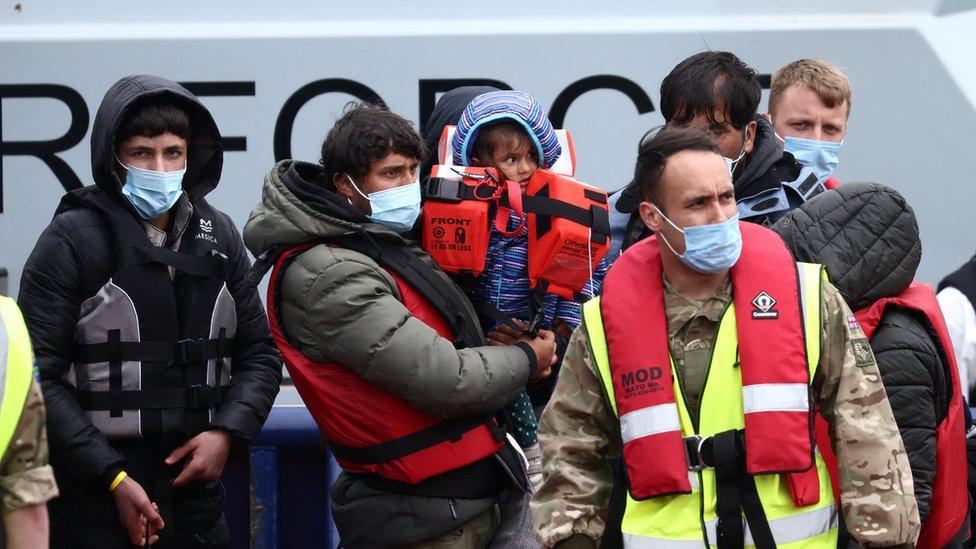
- Published14 April 2022
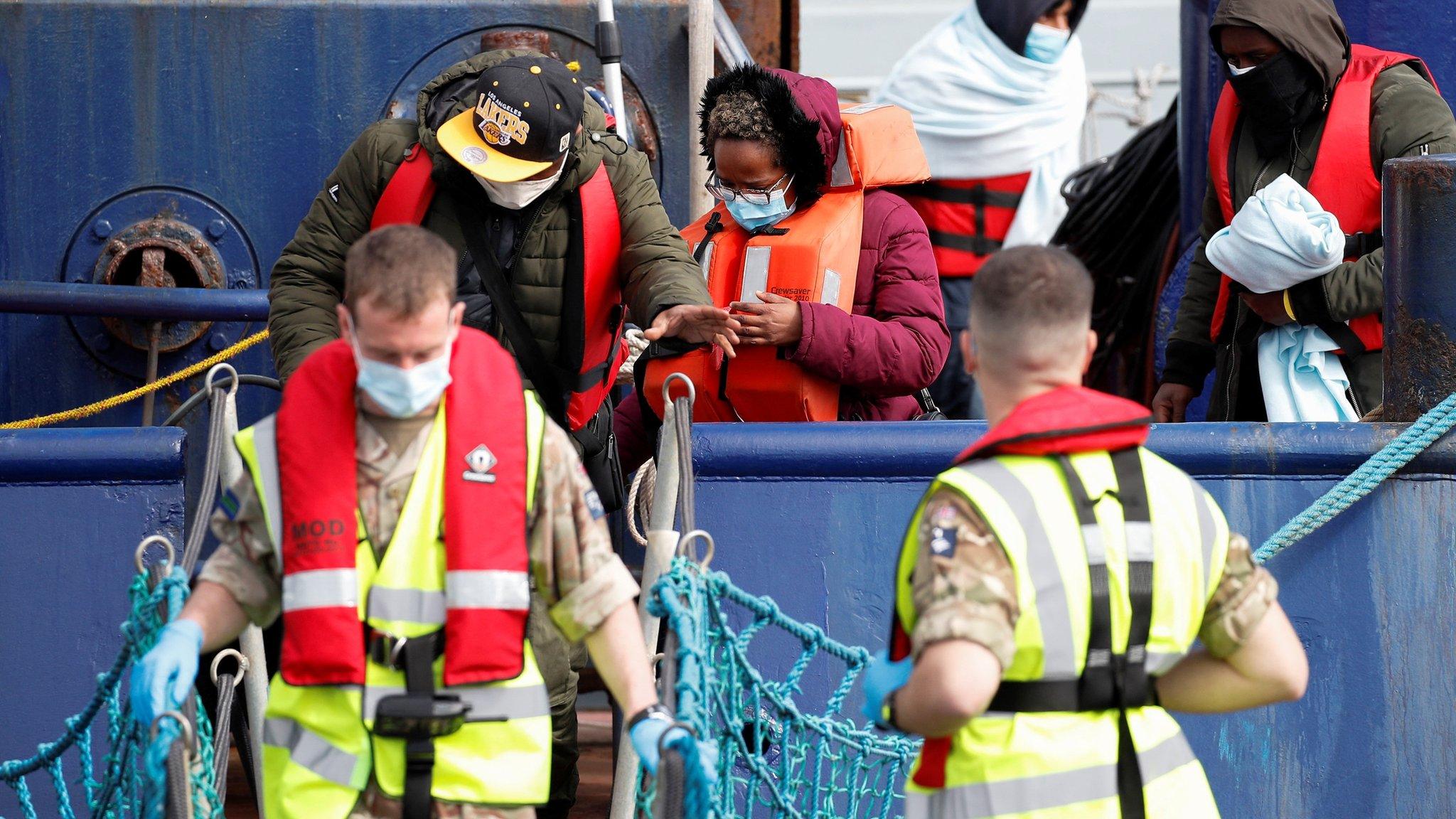
- Published14 April 2022
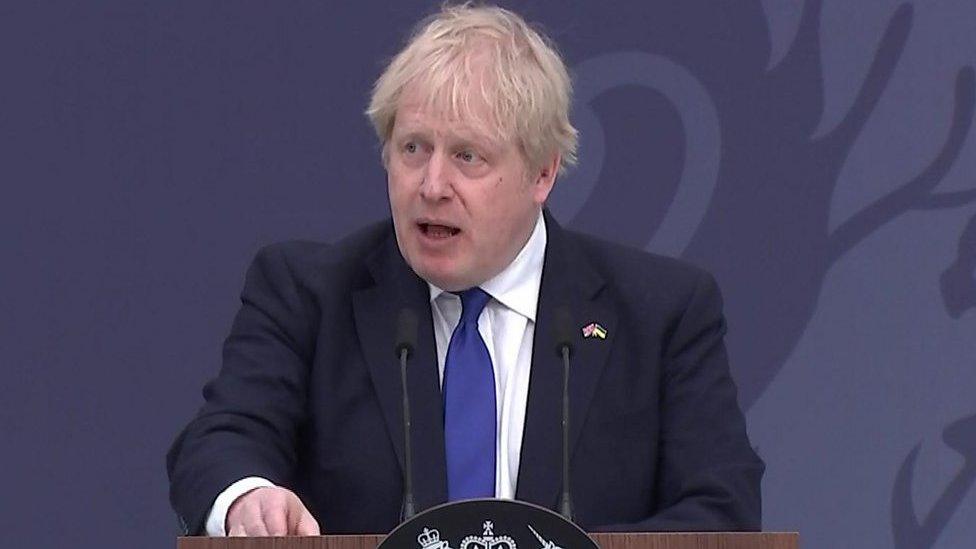
- Published19 April 2022
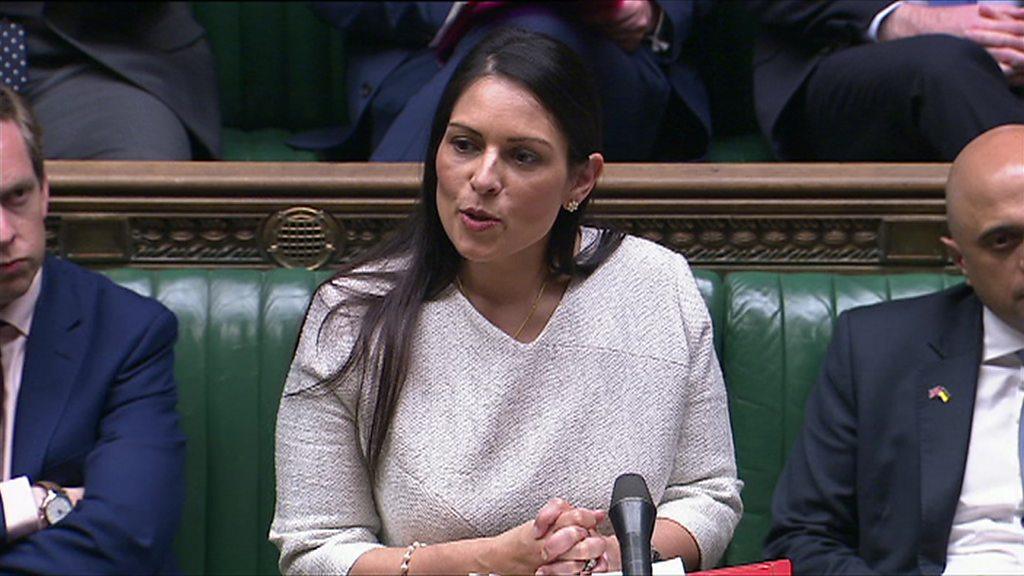
- Published19 April 2022
